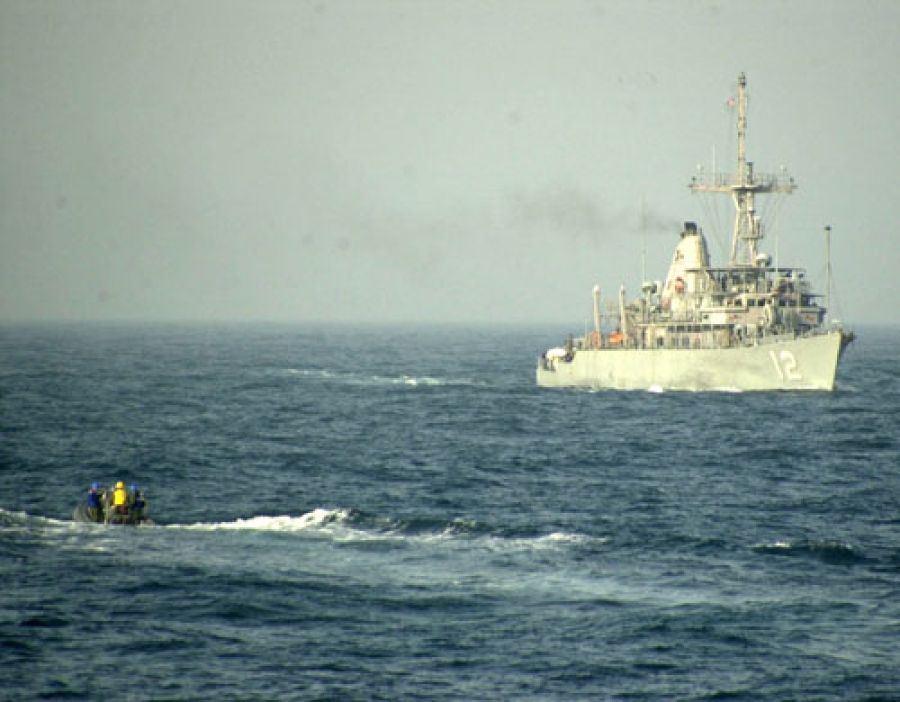The Iraqi invasion of Kuwait started on 2 August 1990, at 01:00hrs. The UNSC
responded quickly that same day with the adoption of SC Res. 660 (1990). In line
with Article 39 of the UN Charter the UNSC determined that the Iraqi invasion was
a breach of international peace and security and demanded an immediate withdrawal
of Iraqi forces. At that stage, no mention was made of Article 51 of the UN
Charter. The affirmation that the situation was indeed considered a situation of
self-defence followed four days later, on August 6, when the Council adopted SC
Res. 661 (1990). In addition, the UNSC also imposed a trade embargo on the
import into the territories of all member nations of all the commodities and products
originating in Iraq or Kuwait. Assisting Kuwait, the US and UK started maritime
interception operations on 16 August 1990. The Chinese freighter Heng Chung Hai
was the first vessel boarded by USS England and released again after inspection.
With both the UN and individual States acting at the same time, discussions started
on the legal basis with regard to the ongoing maritime interception operations. On
August 25, the UNSC adopted SC Res. 665 (1990). After this resolution it was
generally recognized that the UNSC indeed had authorized seaborne enforcement
of the earlier adopted UN sanctions. Between 16 and 25 August, US naval assets
diverted two vessels, of which one was boarded. States that had deployed their warships to the Persian Gulf and other parts of the seas around the Arabian Peninsula now started to enforce UN-mandated economic sanctions against Iraq in a multinational coalition operation. The participating warships that enforced the UN
sanctions were dubbed to be part of the Maritime Interception Force (MIF). The
inspection area for the MIF ran from the Persian Gulf to the Indian Ocean and from
the Northern Red Sea to the Gulf of Aqaba, but was after some time limited to the
Persian Gulf and the Indian Ocean. The MIF lasted for thirteen years when the
UNSC adopted SC Res. 1483 in 2003 that was taken in light of the new situation in
Iraq. In March 2003, military forces of the US-led coalition had entered Iraq to oust
Saddam Hussain from its reign and to search for weapons of mass destruction.

